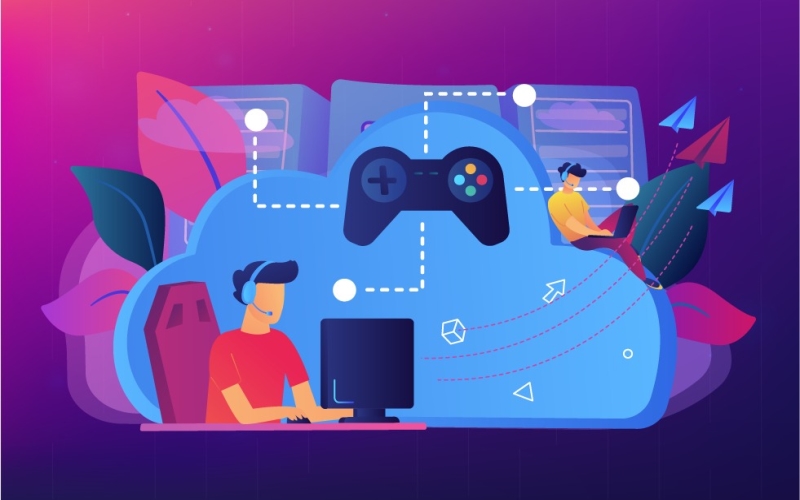Online สมัครบาคาร่า888 gaming has transcended mere entertainment to become a thriving virtual economy, where players buy, sell, and trade virtual goods and currencies within digital worlds. From in-game items and virtual real estate to virtual currencies and digital assets, the virtual economy of online gaming has become a multi-billion-dollar industry with its own unique dynamics and principles. In this article, we’ll explore the intricacies of virtual economies in online gaming, examining their structure, functions, and economic implications.
The Basics of Virtual Economies:
A virtual economy refers to an economy that exists within a virtual or digital environment, such as an online บาคาร่าเว็บตรง777 game or virtual world. In a virtual economy, players use virtual currencies, goods, and services to engage in economic transactions and interactions with one another and the game environment. These virtual economies are governed by their own set of rules, mechanisms, and dynamics, which may differ significantly from real-world economies.
Virtual economies in online gaming can take various forms, ranging from simple barter systems to complex marketplaces with supply and demand dynamics, inflation, and currency exchange rates. The primary goal of virtual economies is to facilitate trade and commerce within the game environment, allowing players to acquire, exchange, and accumulate virtual wealth and assets.
Virtual Currencies:
One of the defining features of virtual economies in online gaming is the use of virtual currencies as a medium of exchange. Virtual currencies, also known as in-game currencies, are digital tokens or credits that players can earn, purchase, or exchange for goods and services within the game world. These virtual currencies often have their own names, symbols, and exchange rates, and may be earned through gameplay, purchased with real money, or obtained through other means.
Virtual currencies serve several functions within virtual economies, including facilitating economic transactions, providing a measure of value for goods and services, and serving as a store of wealth and purchasing power. In many online games, players can earn virtual currencies by completing quests, defeating enemies, or participating in activities such as crafting, trading, and resource gathering.
Virtual Goods and Assets:
In addition to virtual currencies, virtual economies in online gaming are also characterized by the exchange of virtual goods and assets. Virtual goods refer to in-game items, equipment, or accessories that players can acquire, own, and use within the game world. These virtual goods can take various forms, including weapons, armor, clothing, cosmetic items, and collectibles, and may have different attributes, rarities, and values.
Virtual assets, on the other hand, refer to more permanent or substantial holdings within the game environment, such as virtual real estate, properties, or businesses. These virtual assets may be purchased or acquired through gameplay and can have significant value and utility within the game world. For example, players may invest in virtual properties to generate income, establish businesses, or participate in virtual economies as entrepreneurs and investors.
Player-driven Economies:
One of the most fascinating aspects of virtual economies in online gaming is their player-driven nature, where economic activity is largely driven by the actions and decisions of players themselves. Unlike real-world economies, which are influenced by complex socio-economic factors and government policies, virtual economies are shaped by player behavior, preferences, and interactions within the game environment.
In many online games, players have the freedom to buy, sell, and trade virtual goods and currencies with one another through player-to-player transactions or in-game marketplaces. This decentralized and bottom-up approach to economic organization allows for greater flexibility, innovation, and dynamism within virtual economies, as players adapt to changing market conditions and pursue their own economic goals and objectives.
Economic Challenges and Issues:
Despite their popularity and success, virtual economies in online gaming are not without challenges and issues. One of the primary challenges is the prevalence of illicit activities such as fraud, hacking, and exploitation, which can undermine the integrity and stability of virtual economies. In addition, virtual economies are vulnerable to inflation, deflation, and other economic disruptions caused by factors such as changes in game mechanics, player behavior, or external events.
Furthermore, virtual economies in online gaming often operate in a legal and regulatory gray area, with few laws or regulations governing the exchange of virtual goods and currencies. This lack of oversight can lead to disputes, scams, and other conflicts between players and may hinder the development and growth of virtual economies.
Future Trends and Developments:
Looking ahead, the future of virtual economies in online gaming is bright, with continued growth and innovation expected in the years to come. Advances in technology, such as blockchain and non-fungible tokens (NFTs), hold the potential to revolutionize virtual economies by providing new mechanisms for asset ownership, trading, and authentication.
Additionally, the growing popularity of virtual reality (VR) and augmented reality (AR) gaming experiences could further expand the scope and scale of virtual economies, creating new opportunities for immersive and interactive economic interactions within virtual worlds.
In conclusion, virtual economies in online gaming represent a fascinating intersection of technology, economics, and human behavior. With their unique dynamics and principles, virtual economies offer a glimpse into the future of economic organization and exchange in an increasingly digital and interconnected world. As virtual economies continue to evolve and mature, they will play an increasingly important role in shaping the future of online gaming and the broader digital economy.

